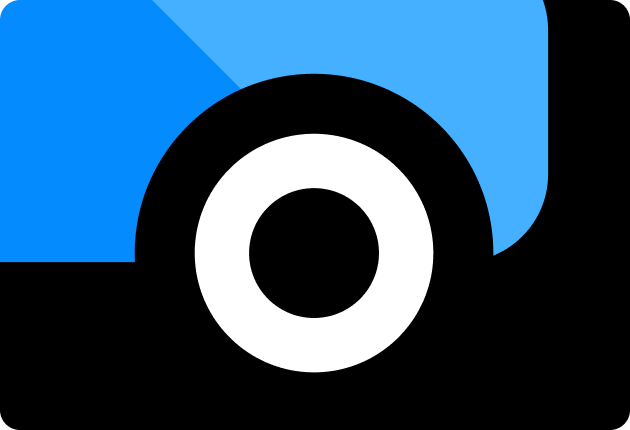
Last Updated on 2024-01-05
Pro’s and Con’s of Prop 22 for California DoorDash Drivers
We worked with these active, experienced gig-workers to write this article and bring you first-hand knowledge.

5 years of experience as a DoorDash Dasher

Experienced writer/researcher in the gig industry working alongside our gig-workers

8 years of experience working across DoorDash, Instacart, Postmates, Uber, and Lyft

7 years of experience working across DoorDash, Lyft, Amazon Flex, and Instacart
The information provided in this post is for informational purposes only and should not be construed as legal or tax advice. The content contains general information and may not reflect current legal developments. Any reader should consult with a legal or financial professional to obtain advice tailored to their specific circumstances.
California Proposition 22 (Prop 22) is a law that regulates how app-based transportation and delivery drivers (such as Lyft, Uber, and DoorDash drivers) are classified and treated in California.
The law is essentially a countermeasure to California’s AB 5, which required many freelancers and gig workers to be reclassified as employees. AB 5 received a lot of backlash because (unsurprisingly) not all gig workers want to be full-time employees — many people get into gig work precisely because they want the benefits of being self-employed.
Prop 22 dialed back the regulations set out in AB 5 and allows gig workers to be classified as independent contractors, but also requires companies like DoorDash to provide them with more benefits than they did before.
Although Prop 22 only affects California Dashers, other states, including Illinois, New York, and New Jersey, are considering passing related measures, so similar regulations could affect you in the future, no matter where you are in the US.
Like AB 5, Prop 22 is fairly controversial. It was passed with a solid majority of 58%, but it was soon after deemed unconstitutional by a California judge. And then that ruling was overturned — clearly a bumpy road.
Here, we’ll cover the pros and cons of Prop 22 and how it will affect you as a California Dasher.
Pros of Prop 22
1. Guaranteed Minimum Earnings ensures a minimum of income for you
With Prop 22, Dashers are guaranteed to earn 120% of the California minimum wage for active time spent on the DoorDash platform as well as $0.34 per mile driven during that time.
Please note that active time means time you’re actively on a delivery. It begins the moment you accept an offer and ends once you complete it.
With the current (as of 2024) minimum wage set at $16.00, that means that California Dashers are guaranteed $19.20 per hour when actively working. Tips and referral bonuses are not counted towards this amount.
But the key part of this regulation is that this is only the minimum you can expect to earn — it’s not a wage or salary, so you can still earn more. It simply guarantees that under no circumstances will you earn less.
Let’s make this clearer with an example. Imagine that you Dash for 20 hours one week and drive 200 miles. According to Prop 22, for that week, you will earn at least:
(20 * $19.20) + (200 * $0.34) = $452
Now, imagine that the base pay of your deliveries for the week only came out to $400. In that case, DoorDash would automatically increase your week’s pay with a top up pay adjustment by $52 to comply with the regulations set out by Prop 22.
But what if you earned more than $452 in base pay? Then you’d keep all the extra money you earned — the point of the Guaranteed Minimum Earnings rule is to give Dashers more financial security, not to cap their pay.
And if you earned only $400 in base pay but $80 in tips and $500 in referral bonuses? In that case, DoorDash would still increase your pay by $52 — the minimum earnings only take base pay into account.
2. Healthcare stipends help offset your health insurance costs
As a self-employed Dasher, you won’t receive a health insurance policy from DoorDash. That means you’re responsible for procuring your own health insurance, which can be pretty expensive, especially if you don’t qualify for Medicaid, Medicare, or federal subsidies (make sure to check what you qualify for with your state’s health marketplace).
Prop 22 aims to help make getting health insurance more financially feasible for Dashers. Under the law, Dashers that:
- Averaged 15 or more active hours per week within a given quarter
- Are enrolled in a qualifying healthcare plan during that same quarter that is not employer or government sponsored
are eligible to receive a quarterly healthcare stipend from DoorDash.
How much is the healthcare stipend? If you:
- Averaged 15-25 active hours per week during the quarter: $683
- Averaged 25 or more active hours per week during the quarter: $1,366
If you qualify for the stipend, you’ll receive communications from DoorDash when the application window opens. To receive the stipend, you’ll need to follow DoorDash’s instructions to apply by the following dates each year:
- April 1 - April 15 for the Q1 stipend
- July 1 - July 15 for the Q2 stipend
- October 1 - October 15 for the Q3 stipend
- January 1 - January 15 for the Q4 stipend
3. Safer working conditions with limited hours
All California Dashers are required to complete an online safety course and take an uninterrupted 6 hour break if they work more than 12 hours within a 24-hour period calculated (based on dash time, which is the time you’re logged into the app and delivering or ready to start a delivery).
On the surface, this is a bit annoying, but the course is easy to complete and provides important safety information, and the mandatory breaks ensure that you’re not driving in an impaired and accident-prone state, both of which keep you and others safer. It’s also fairly generous as far as driving limits go — most resources say it’s unsafe to drive for more than 8 hours a day with 15 minute breaks every two hours, and Prop 22 allows for 50% more driving time than that.
Cons of Prop 22
1. Reduced ability to work how long you want
While the mandatory break does ultimately benefit Dashers by keeping them safe, it does mean that Dashers don’t have full control over their work schedules anymore — Prop 22 makes it illegal to dash for more than 12 hours a day.
That said, very few Dashers will ever reach that limit, and you still get total control over when and where you complete those hours. Plus, with the base pay guarantees, you’re less likely to need to Dash for such long periods of time.
2. Possibly fewer delivery opportunities
As with any kind of “minimum wage” legislation, increasing wages for all workers runs the risk of lowering demand for that kind of work. If DoorDash is paying its Dashers more per order, it will likely want to increase prices for customers making the order to make up for it. With higher prices, fewer consumers will make orders.
If you have an efficient way to spend your time, and DoorDash is just a side hustle for you, that could be great - now you’re making more money for the time you’re actively Dashing. If you were planning on using DoorDash as a full time job, then you may be well-advised to sign up for some other gig apps in addition to DoorDash so you can make sure you’re filling your schedule and don’t have too much downtime.
Get started Dashing
If you’re ready to hit the road with more confidence than ever before, then sign up now to become a Dasher. It only takes a few minutes, and you can start earning within days.
